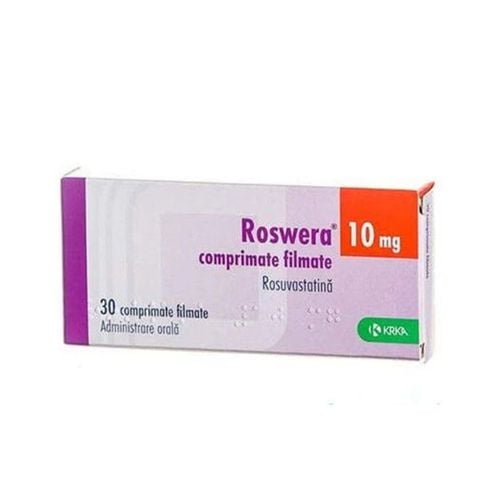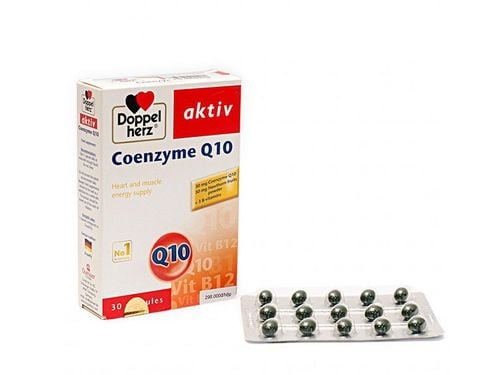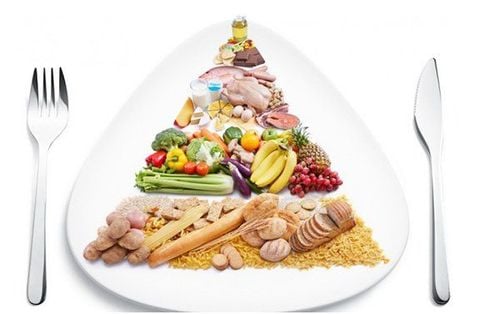What should individuals with myocardial ischemia avoid consuming, and how should their diet be structured to enhance cardiovascular health? Myocardial ischemia refers to an imbalance between the supply and demand for oxygen by myocardial cells when the coronary arteries—the blood supply source to the heart—fail to provide sufficient oxygen to the myocardial cells.
1. What is myocardial ischemia?
1.1 Definition
Myocardial ischemia is a cardiovascular condition that arises when there is partial narrowing of the coronary arteries, specifically the arteries responsible for delivering blood and nutrients to myocardial cells.
The etiology of myocardial ischemia typically stems from the patient's body responding to various cardiovascular risk factors, leading to increased heart rate, elevated blood pressure, and additional biochemical responses. These alterations can induce chronic inflammation within the coronary arteries. Damage to the coronary arteries during this process facilitates the development of atherosclerotic plaques, resulting in luminal narrowing and ultimately leading to myocardial ischemia.
1.2 Risk Factors
Currently, myocardial ischemia is commonly associated with several specific risk factors, including:
Modifiable risk factors:
- Psychological: Psychological issues such as stress, anxiety, negative thinking, depression, and a lack of social support may contribute to the incidence of myocardial ischemia.
- Diet: An imbalanced and inadequate diet can serve as a risk factor.
- Tobacco use: Smoking is linked to the occurrence of myocardial ischemia.
- Overweight or obesity: Both overweight and obesity are identified as significant risk factors for cardiovascular disease.
- Limited physical activity: A sedentary lifestyle and insufficient physical activity can increase the risk of myocardial ischemia.
- Alcohol consumption: Excessive alcohol intake has also been associated with this condition.
- Comorbidities: Conditions such as hypertension, diabetes mellitus, and dyslipidemia may contribute to the development of myocardial ischemia.
Dietary practices (including what patients with myocardial ischemia should avoid and how they should eat) play a significant role in mitigating modifiable disease risk factors. Consequently, adherence to a proper dietary regimen is particularly essential for individuals with cardiovascular diseases.
Non-modifiable risk factors:
- Age: Increasing age is an unmodifiable risk factor that can elevate the likelihood of developing myocardial ischemia.
- Sex: The condition is more prevalent and appears earlier in males.
- Postmenopausal status: Women post-menopause exhibit a higher incidence of myocardial ischemia.
- Family history: A familial history of cardiovascular disease increases the risk of developing the condition.
- Ethnicity: The incidence of myocardial ischemia is higher among individuals of East Asian and South Asian descent, while it is lower in Black populations.
2. Clinical Symptoms of Myocardial Ischemia
Chest pain is often associated with myocardial ischemia. Some patients may not experience chest pain but instead present with other symptoms such as palpitations, dyspnea, altered consciousness, fatigue, syncope, or coma, hyperglycemia, hypotension, and various other symptoms.
To diagnose myocardial ischemia, the following methods may be employed:
- Electrocardiogram (ECG): Recording abnormal findings on the ECG to detect signs of cardiac issues.
- Cardiac biomarker assays: Assessing cardiac enzyme biomarkers to evaluate cardiac health.
- Echocardiography: Utilizing echocardiography to assist in diagnosis and differentiate between various cardiac conditions based on function.
- Serum electrolyte tests, serum lipid tests, liver and renal function tests: Conducted to provide more detailed information about overall health status and assess the risk of myocardial ischemia.
These methodologies help clarify cardiac status and provide crucial information for clinicians to make informed decisions regarding appropriate therapies and management.
3. The Importance of Nutrition for Patients with Coronary Artery Disease
Coronary artery disease may lead to serious complications such as acute myocardial infarction, a condition with a high mortality rate if not detected and treated promptly. Additionally, other risks such as heart failure, arrhythmias, and valvular insufficiency can directly impact the health and quality of life of the patient. Therefore, treatment, management, and prevention of the disease are of utmost importance. Regular check-ups, lifestyle modifications, and a healthy diet all play a crucial role in disease management.
Upon diagnosis of coronary artery disease, maintaining a heart-healthy diet is paramount to reducing risk factors associated with the disease, such as hypertension, hypercholesterolemia, obesity, and diabetes mellitus. Alongside adherence to prescribed medication, lifestyle changes such as smoking cessation, regular physical activity, and compliance with a balanced diet can help mitigate the progression of coronary artery disease.
A proper diet plays a critical role in the prevention of cardiovascular disease in general and coronary artery disease specifically. Not only does it help decrease mortality rates from all causes, but it also reduces mortality rates associated with coronary artery disease. In addition to providing essential nutrients to the body, understanding what patients with coronary artery disease should avoid and limiting the intake of those foods will enable patients to better manage their condition.
4. Recommended Foods for Patients with Coronary Artery Disease
Before addressing “what to avoid in coronary artery disease,” it is imperative to explore foods that patients should consume, which include:
- Fiber-rich foods: Such as leafy greens and fresh fruits, these foods offer numerous health benefits. Fiber helps increase satiety, reduces hunger by slowing digestion, and decreases gastric emptying time. Additionally, they assist in lowering blood cholesterol levels and provide essential vitamins and minerals such as potassium and calcium.
- Foods rich in omega-3 fatty acids: Incorporating fatty fish such as salmon and fish oil into the daily diet can help lower blood pressure and reduce the risk of cardiovascular disease. It is recommended to consume fish at least twice a week, and omega-3 supplementation can be considered through dietary supplements like fish oil, under medical guidance.
- Whole grains: These have the potential to lower LDL cholesterol and the risk of heart disease. Oats, beans, and barley are excellent sources of fiber, as well as a source of plant-based protein, healthy fats, and essential nutrients.
- Foods rich in vitamin E: Such as avocados, leafy green vegetables, vegetable oils, and whole grains. Vitamin E possesses antioxidant properties, providing protection against LDL cholesterol.
- Garlic: Contains allicin, which helps lower total cholesterol and LDL levels in the blood, thus reducing the risk of cardiovascular disease.
- Turmeric: Contains curcumin, which has beneficial properties for its antioxidant effects, anti-inflammatory effects, and cholesterol reduction.
- Black pepper: Contains capsaicin, which aids in anti-inflammatory and antioxidant activities and prevents the formation of unhealthy cholesterol.
- Foods high in vitamin C: Such as lemons, oranges, and tangerines help reduce arterial stiffness and maintain the patency and elasticity of blood vessels.
- Ginger: Contains gingerols and shogaols, which are beneficial for cardiovascular health by preventing plaque formation and reducing total cholesterol.
- Whole grain products: Brown rice, oats, and whole grain bread help control blood sugar levels and blood cholesterol content. The fiber found in whole grains assists in managing blood glucose levels and the risk of atherosclerotic plaque formation.
5. Recommended Beverages for Patients with Coronary Artery Disease
For patients with coronary artery disease, the selection of fat-free or low-fat milk is recommended to limit the intake of unhealthy fats.
Additionally, the use of beverages made from blended fruits or vegetables is a wise choice. Among these:
- Green tea
Research indicates that green tea contains bioactive compounds that can prevent cholesterol accumulation in coronary arteries and reduce the formation of atherosclerotic plaques. Moreover, it functions as a vasodilator and exhibits anticoagulant effects, facilitating increased blood flow through the coronary arteries.
- Red wine
Consuming a moderate amount of red wine daily may enhance cardiovascular health. Red wine contains antioxidants that help eliminate LDL cholesterol and promote HDL cholesterol. It is crucial to consume it in moderation, not exceeding 150 ml per day.
- Vitamin C-rich beverages
Juices such as orange, lemon, and tangerine are rich in Vitamin C, which aids in reducing arterial stiffness, lowering blood cholesterol levels, and maintaining the patency and elasticity of coronary arteries.
6. What should individuals with myocardial ischemia avoid eating?
For individuals suffering from myocardial ischemia, managing cholesterol levels, blood pressure, and body weight is paramount. To achieve these goals, the consumption of foods high in fats and sodium should be limited, including:
- Red meat:
Red meat is a source of saturated fat, which increases the risk of cardiovascular disease. Replacing red meat with plant-based proteins such as nuts, legumes, whole grains, and soy products may mitigate this risk.
- Sodium (Salty foods):
Sodium is a well-known element in the dietary considerations for individuals with myocardial ischemia. Excessive sodium intake can elevate blood pressure and increase the risk of heart disease. Controlling sodium intake by reading ingredient labels and choosing unprocessed foods is advisable.
- Sugary beverages and soft drinks:
Processed foods and beverages often contain high levels of sugar, particularly soft drinks and energy drinks. This can increase the risk of cardiovascular disease. Limiting the consumption of sugary beverages can reduce the risk of coronary artery dilation and stroke.
- Processed foods:
Processed foods typically contain numerous components detrimental to cardiovascular health, such as sugar, sodium, trans fats, saturated fats, additives, and artificial coloring. Cooking with fresh, unprocessed ingredients is the optimal choice for maintaining cardiovascular health.
7. Lifestyle modifications play an equally important role alongside dietary restrictions regarding what to avoid and what to consume in cases of myocardial ischemia.
In addition to a healthy diet, there are several non-pharmacological preventive measures for myocardial ischemia that can be implemented as follows:
- Addressing psychological issues: Managing psychological conditions such as anxiety, depression, and stress; altering lifestyle behaviors to improve quality of life.
- Regular physical activity: Engaging in gentle exercises, practicing yoga, or tai chi to strengthen cardiovascular health.
- Avoiding prolonged sitting or lying: Reducing the duration spent in a sedentary position to minimize cardiac strain.
- Cessation of tobacco use: Eliminating smoking, a significant risk factor for cardiovascular disease.
- Weight management: Maintaining a stable weight while avoiding overweight and obesity.
- Balanced diet: Adopting a healthy and scientific dietary regimen to support the prevention of myocardial ischemia.
- Integrating preventive measures: Combining various preventive strategies to decrease disease incidence.
- Routine health care: Visiting a physician for regular assessments and maintaining cardiovascular health monitoring.
In the presence of any abnormal symptoms related to myocardial ischemia, seeking immediate medical attention is crucial for timely diagnosis and treatment.
Please dial HOTLINE for more information or register for an appointment HERE. Download MyVinmec app to make appointments faster and to manage your bookings easily.
To arrange an appointment, please call HOTLINE or make your reservation directly HERE. You may also download the MyVinmec app to schedule appointments faster and manage your reservations more conveniently.








